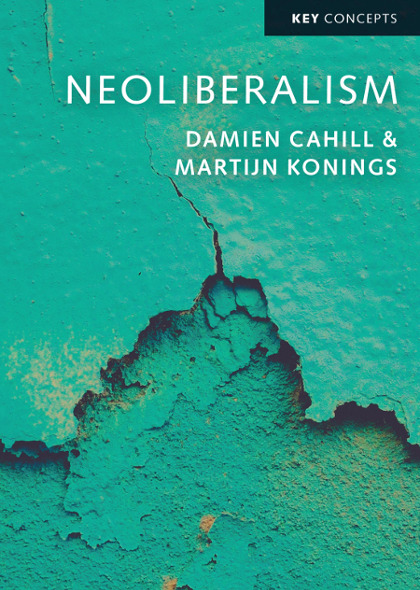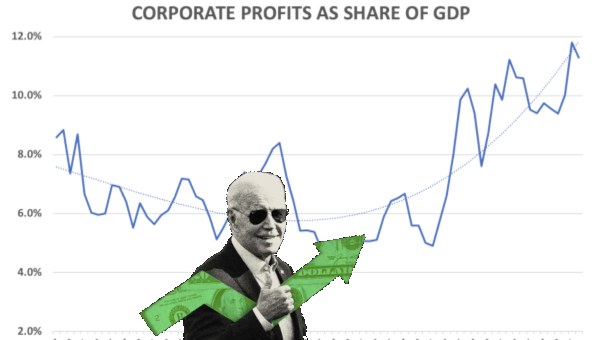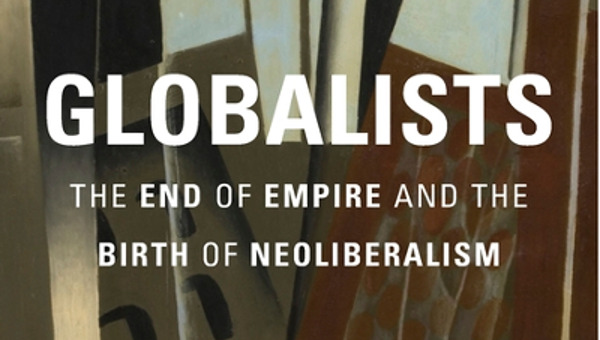It is only over the past decade-and-a-half or so that scholars have begun to explore in greater depth the ideological roots of the neoliberal project. Such contributions tend to focus on the emergence of a distinctly neoliberal critique of ‘collectivism’ (especially as expressed in the post-war welfare state and the state-planned economies like the Soviet Union until the end of the 1980s) during the interwar period, the way this was elaborated through various strands of thinking during the next decades, and how it came to have a crucial influence on political transformations. They tend to describe the transition from the post-war order to the neoliberal era by emphasising the intentions, ideas and interests of elite actors and their ability to purposefully coordinate their actions and implement their political strategies. Examples of such approaches include well-known books – written by authors who otherwise differ significantly in theoretical and political commitments – such as David Harvey’s A Brief History of Neoliberalism (2005), Naomi Klein’s The Shock Doctrine (2008) and Philip Mirowski’s Never Let a Serious Crisis Go to Waste (2013).
 To a significant extent, it is this wave of scholarship that propelled the concept of neoliberalism to its current status as a key concept for understanding the contours of modern life. Until the early years of the twenty-first century, neoliberalism was perhaps more a ‘word’ than a ‘concept’ – just a term used to refer to the general shift from the social-democratic era, to policies and institutions that were more concerned to promote market mechanisms and were more friendly to capital. As such, the word was used mostly as an adjective in major debates that were focused on related but different questions (such as globalisation, industrial restructuring, and deregulation). The word certainly had a somewhat critical connotation and was unlikely to be used by those (e.g. many orthodox economists) who would typically view economic processes as being primarily about neutral measures of economic efficiency and growth. Otherwise, however, the term was not the focal point of scholarly competition to define the character of contemporary capitalism.
To a significant extent, it is this wave of scholarship that propelled the concept of neoliberalism to its current status as a key concept for understanding the contours of modern life. Until the early years of the twenty-first century, neoliberalism was perhaps more a ‘word’ than a ‘concept’ – just a term used to refer to the general shift from the social-democratic era, to policies and institutions that were more concerned to promote market mechanisms and were more friendly to capital. As such, the word was used mostly as an adjective in major debates that were focused on related but different questions (such as globalisation, industrial restructuring, and deregulation). The word certainly had a somewhat critical connotation and was unlikely to be used by those (e.g. many orthodox economists) who would typically view economic processes as being primarily about neutral measures of economic efficiency and growth. Otherwise, however, the term was not the focal point of scholarly competition to define the character of contemporary capitalism.
From Small Beginnings
Recent arguments have claimed that neoliberalism is much more than a useful descriptor – namely, that it is a discrete project whose origins can be traced back to the interwar period and came into its own during the 1970s, when powerful organisations and political forces gravitated around the neoliberal intellectual tradition and gave it financial backing and institutional materiality. And this has forced perspectives that until then had used the word in a more casual way to make explicit how they view the neoliberal phenomenon. Although there is no shortage of rival definitions of neoliberalism, a trend is to insist that the concept should not or cannot be neatly defined. In the course of these debates, the growing interest in neoliberalism as a discrete political project, with distinctive ideational antecedents, has been matched by growing scepticism regarding the term’s use. One often hears that it is a somewhat lazy way for left-wing critics to group together any number of heterogeneous things to which they happen to be opposed. Imprecision would seem to characterise its use, sometimes even among those for whom the concept is central to their analysis, and its over-use is seen to have resulted in a loss of analytical value. This has led some to argue that scholars would be best served by jettisoning this unhelpful label. Others point to what they view as a disconnect between neoliberal theory and the major transformations to states and economies through processes of deregulation and privatisation.
But, of course, the notion of a strict correspondence of concept and reality rarely provides a good basis from which to evaluate the usefulness of concepts. By their nature, the labels we use represent abstractions, approximations and ideal-types. Social science scholarship tends to characterise political economic-regimes with reference to the normative doctrines to which their supporters profess allegiance: Keynesianism, socialism, liberalism, etc. A label such as neoliberalism is of course not by itself capable of capturing the complex dynamics and variegated details of social formations. The question is rather whether it provides a useful entry point, a way of looking that can subsequently be enriched with empirical detail. The phenomena and processes of human life are inherently more complex than social-scientific concepts we use to comprehend them; this truism should not be used to fudge the issue of the relevance of neoliberalism. The labels we use are in many respects less important than our description of the political economic processes to which the label refers. It is therefore worth reviewing some of the main approaches to neoliberalism in order to lay the groundwork for presenting our own perspective.
It is useful to start with what we might call the ‘classic’ perspective on neoliberalism, which saw it in terms of the growing power of markets vis-à-vis nation-states. We find here a very literal interpretation of the ‘neo’ in ‘neoliberal’: it sees neoliberalism as a revival of classic laissez-faire liberalism, marked domestically by a return to the minimal state and internationally by the resubordination of national policy priorities to the forces of economic and financial globalisation. For many purposes, this is a useful way of thinking about the changes neoliberalism has set in motion. But the tendency of thinkers in this vein to quickly qualify their basic assertions about the decline of the state suggests that the model has clear limitations. That is to say, it often has major difficulty accounting for those aspects of neoliberalism that do not fit with the idea of a return to a laissez-faire state.
This focus can be contrasted to the tendency to put neoliberal ideas and theories at the centre of analysis – a tendency that has been pronounced among recent contributions. Many ideational accounts emphasise how neoliberal ideas have developed historically and the organisational forms through which this has occurred. Typically this entails a close reading of the texts produced by key neoliberal intellectuals, the ways these were translated by neoliberal think tanks and their relationships with political and economic elites. For some scholars, such analysis is primarily an exercise in intellectual history that seeks to understand the diversity of currents that comprise the neoliberal intellectual movement and the sometimes nuanced differences between its leading figures. But it is increasingly common for such scholars to either treat neoliberal ideas as the key to deciphering the logic of the neoliberal revolution in policy or to see a fairly straight causal line from the formulation of neoliberal ideas to the implementation of neoliberal policy models, uncovering the hidden machinations of neoliberal think tanks and their attempts to shift the prevailing climate of opinion.
Emblematic of the latter tendency is Mirowski’s focus on the ‘neoliberal thought collective’ – the network of think tanks centred on the Mont Pelerin Society that mobilised from the 1940s onwards to shift elite opinion in a neoliberal direction. He recognises that neoliberalism did not entail a weakened or smaller state, nor free markets. Rather, he argues that the neoliberal thought collective and intellectuals such as Hayek and Friedman deliberately sought to cultivate an image of neoliberalism as concerned with the promotion of the freeing of markets by limiting the state, all the while recognising that any form of state action, including authoritarianism, was consistent with constructing a competitive economic order based on private property. Mirowski describes this as ‘the double truth doctrine’, a strategy whereby the neoliberal thought collective publicly advocated free markets and small states, whereas in their own private meetings and with policy elites they advocated the state-enforcement of market rule.
If we take Mirowski’s account as the limit point of the idealist take on neoliberalism, it readily bears out some of its limitations. Certainly conspiracies exist and we may readily grant that the Mont Pelerin Society is as close to one as we may ever hope to find evidence of; but the mere discovery of a conspiracy should not lead us to assume that it must have succeeded in realising its goals in the way it intended, or that it has been the organisational force behind its own realisation. In other words, we should not assume that neoliberalism can only rise to power through bypassing democratic institutions and the popular will. Although neoliberalism has involved its fair share of vanguardist initiatives, as a blanket statement this is untenable. Among the most telling examples here, what should we make of the many working-class Brits who voted for Thatcher, and the many working-class Americans who voted for Reagan? To say that these people simply have been misled by the ‘double truth’ machinations of neoliberal elites is to revert to a crude notion of ideology that has been widely discredited, and for good reason.
Still other scholars understand neoliberalism as the product of institutional variables. Such approaches tend to reject the idea that economic transformations simply mirror the prescriptions of neoliberal theory, and focus instead on identifying the actual development of pro-market and pro-business policy shifts, investigating how nationally specific institutional architectures mediate the adoption and implementation of neoliberal ideas. Such institutionalist approaches alert us to the unevenness, variegation and contextual specificity evident in the roll-out of neoliberalism globally. Moreover, by highlighting that privatisations and deregulations in practice often led to a proliferation of new regulations, the rich empirical studies produced by scholars within this tradition of analysis also provide a useful corrective to the over-simplistic view of neoliberalism as a system of rolling back the state.
The Forces of Neoliberalism
But where this literature is less robust is in explaining what forces are at work, amidst all the diversity of institutional dynamics, that requires using a generalising concept like ‘neoliberalism’. In other words, the institutionalist literature tends to be insufficiently concerned with the systemic dynamics of the capitalist economy and the common pressures that it imposes. Even though the global economic crisis of the 1970s is often seen as a catalyst for the changes being analysed, in many institutional accounts the global economy lurks in the background of analysis – forming the context for the story of institutional transformation, yet not amenable to explanation by the conceptual tools of institutional analysis itself. In reducing the question of neoliberalism to a purely empirical one, it seems that we may be missing out on some of its key aspects and its distinctive significance.
Neoliberalism should not be separated from a more general understanding of capitalism: neoliberalism, as Alfredo Saad-Filho argues is ‘the mode of existence of contemporary capitalism’. At the same time, however, we should not understand neoliberalism as simply a return to a basic form capitalism. Here we follow the spirit of other scholars, such as Neil Brenner, Jamie Peck and Nik Theodore, who share a concern to avoid overly idealist explanations and to incorporate institutional factors into their analysis, but remain concerned to formulate a critique of neoliberalism as a distinctive political project. Neoliberalism represents an attempt to reconstruct capitalism in a way that registers some of the limitations of classic liberalism. Unlike classic liberalism, neoliberalism does not take the existence or reproduction of capitalism for granted. It is keenly aware that markets not are not natural phenomena that simply emerge when institutional obstacles are absent.
This constructivist impulse is at the heart of what Jamie Peck refers to as ‘neoliberal reason’ and it is why neoliberalism involves much more than simple deregulation. Neoliberalism is characterised by a certain degree of comfort with the constitutive character of institutional interventions: at its heart is an awareness that, whatever its official slogans might declare and however important promises of getting the state out of people’s business are to its political legitimacy, its success is not predicated on the realisation of some utopian state of non-intervention. It is such a focus on the institutional transformations effected by neoliberalism that can be usefully elaborated through an engagement with the history of neoliberal ideas. Peck draws on the history of neoliberal ideas, not in order to find the origins of the neoliberal project as it was later realised, but rather as new sources of insight into the distinctive logic of neoliberalism. This steers the analysis of neoliberalism away from exaggerated concern with the actions of small circles of political and ideological elites. It expresses the idea that the power of neoliberalism does not just involve the top-down imposition of a regime biased in favour of corporate and financial interests, but is also rooted in a broader field of beliefs, practices and institutions. And yet the notion that free markets are the most efficient and desirable basis of human organisation and the claim that states are inherently inefficient are at the heart of the logic and appeal of neoliberalism.
These two poles of market construction and market freedom coordinate neoliberal reason, a rather malleable set of political heuristics that, from the 1970s, came to shape processes of political and economic transformation that had been set in motion by the crisis of the early post-war order. It provided political and economic elites with modes of seeing, formatting and interpreting in ways that were certainly ideological, but also broadly compatible with the imperative to restructure faltering capital accumulation. Central to this was a much greater engagement of corporations in the delivery of social services through policies of privatisation and marketisation; the extensive deregulation of industries, including financial deregulation which enabled financial capital to play a more dominant role within the global economy and indeed, people’s everyday lives; new approaches to macroeconomic policy, beginning with the dismantling of the Bretton Woods system of exchange rate controls and culminating in a focus on low inflation and tolerance of much higher levels of unemployment than previously; and a confrontation of the power of labour unions. This resulted in a new institutional architecture for managing capitalist social relations, at both domestic and global levels, even if there was a deep temporal and geographic unevenness to this process. •
This post is an abridged excerpt from the Introduction to Damien Cahill and Martijn Konings’ new book, Neoliberalism, published as part of Polity’s ‘Key Concepts’ series.





